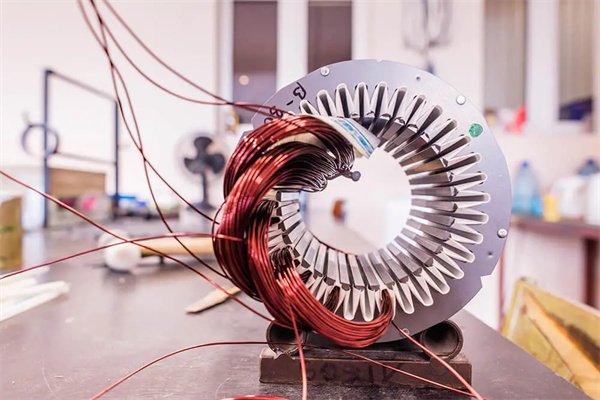Electric motors are the lifeblood of modern industrial processes, powering everything from manufacturing plants to transportation systems. When it comes to high-powered applications, motors ranging from 250 to 1000 horsepower (HP) take center stage. These robust machines are crucial in driving heavy-duty machinery, and optimizing their performance is essential for maximizing efficiency and minimizing downtime. In this blog, we delve into the world of coiling electric motors in the 250 to 1000 HP range, exploring the significance, challenges, and techniques involved.
 The Significance of Coiling
The Significance of CoilingThe process of coiling an electric motor is one of the most critical steps in its manufacturing and maintenance. Coiling refers to winding the motor's copper wire around the stator and rotor to create magnetic fields that enable the conversion of electrical energy into mechanical power. The intricacies involved in coiling become even more pronounced as the power rating of the motor increases.
Challenges in Coiling High-HP MotorsCoiling a high-horsepower motor comes with its own set of challenges due to the increased demands on the components. Some of the key challenges include:
Space Constraints: As motor power increases, the available space for the copper winding decreases. Engineers must design the winding configurations carefully to ensure optimal performance without compromising on other essential aspects of the motor.
Heat Dissipation: Higher HP motors generate more heat during operation, necessitating better heat dissipation from the coils. Inadequate cooling can lead to premature failure of the motor and reduced efficiency.
Insulation and Electrical Stress: Electric motors experience significant electrical stress during operation. Choosing the right insulating materials and techniques becomes vital to prevent breakdowns and ensure long-term reliability.
Mechanical Strength: The forces experienced by the coils in high-powered motors are substantial. Engineers must design the coil assembly with the mechanical strength to withstand these forces without deformation or damage.
Techniques for Coiling High-HP MotorsTo overcome the challenges involved in coiling high-HP motors, several advanced techniques have emerged:
Concentric Windings: Engineers use concentric winding configurations to optimize space utilization while maintaining adequate insulation. Concentric winding minimizes coil dimensions, enabling higher copper fill factors within the available space.
Slot Insulation: Implementing advanced slot insulation techniques enhances the motor's electrical performance. This includes using insulating materials with higher temperature ratings and precision manufacturing processes to reduce air gaps and improve heat dissipation.
Resin-Rich Coils: To enhance the mechanical strength and durability of the coils, resin-rich insulation is applied during the coiling process. This technique provides better protection against mechanical stress and vibration, extending the motor's operational life.
Computer-Aided Design (CAD): CAD software plays a pivotal role in the design and simulation of high-HP motors. Engineers can visualize and optimize the coil winding patterns and configurations before physically coiling the motor, reducing the chances of errors.
Advantages of High-HP MotorsInvesting in high-HP motors offers numerous advantages for industries requiring heavy-duty machinery:
Increased Power Output: High-HP motors deliver superior torque and power, enabling the efficient operation of large industrial equipment, pumps, compressors, and other energy-intensive processes.
Energy Efficiency: Despite their higher power output, modern high-HP motors are designed with improved energy efficiency, leading to reduced operating costs and a smaller carbon footprint.
Compact Footprint: By adopting advanced coiling techniques, high-HP motors can be designed with compact footprints, making them suitable for applications with limited installation space.
Reliability and Durability: Well-designed high-HP motors, when properly maintained, exhibit exceptional reliability and durability, reducing the need for frequent replacements and costly downtime.
ConclusionCoiling electric motors in the 250 to 1000 HP range is a complex and demanding process that requires expertise, precision, and innovative techniques. Overcoming the challenges of space constraints, heat dissipation, insulation, and mechanical strength is crucial in creating robust and reliable high-powered motors. As technology advances, we can expect even more efficient and powerful motors that drive industries forward while maintaining environmental sustainability. Embracing these technological advancements will undoubtedly unlock greater potential for electric motors, paving the way for a more electrified and energy-efficient future.
